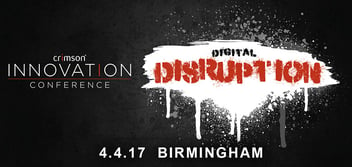In conversation with Peter Adams
Name: Peter Adams
Job Title: Group Business Systems and Transformation Director
Company: Avant Homes
Time in current role: 3 years
What was your first job?
I started out providing technical support and training in iTech which was an IT training school that was set up by the government back in the 1980’s. It provided basic IT, networking, computer skills to people who were on the YTS scheme and the job training schemes that were launched following Margaret Thatcher’s government.
Explain your career path. Did you take any detours? If so, discuss.
What are your hobbies/interests?
I like to exercise and keep fit, I’ve previously trained for triathlons and did a lot of martial arts when I was younger. I’ve always enjoyed the physical activity. I have an interest in photography and art, and making videos, so I tend to play around with that alongside playing around with technology generally – I’m not far away from a device if I can help it. Perhaps that’s why I’m been working in the field so long! If I’m not working with technology directly, I’m working with it indirectly – to find out how to do it directly! I’m an avid reader of business materials and I’m doing an MBA for that broader outlook to life.
What is the best career advice you ever received?
I think it’s almost best life advice – I was working for a CIO at Oxford Instruments and his advice to me was to do the work and not to worry about the titles and the strap lines, but to focus on the work. That reminded me of something. I was taught as a young lad that you put the work in, do the work, work hard and the everything else will flow. It’s probably a well-served life lesson that you do the work first, and you build from that. Don’t build on in substantial effort, just do the work.
Do you have a succession plan? If so, discuss the importance of and challenges with training up high-performing staff.
Succession planning is difficult, I think. What I like to do is to help people develop, it’s probably one of my passions I’ve had in the job for years. I have been identifying people’s capabilities, opportunities, ambitions, aptitudes, and then I encourage them to stretch and grow themselves and give them the opportunity to try new things and broaden their experiences. The larger challenge tends to be that people tend to pick roles from the same pool, so whilst I’ve prepared people so they can step into those roles, the likelihood is that they will have to get that first opportunity somewhere.
That’s my succession planning and then it shows to keep preparing people, keep giving them the opportunity, help them grow and develop the skill set so that should opportunities present themselves, they can comfortable and confidently step forward and take them on.
What has been your greatest career achievement?
What business or technology initiatives will be most significant in driving digital investments in your organisation in the coming year?
I think we have a number of streams of activity, we identified there was probably a core infrastructure challenge to get basic foundations - if you excuse the pun for builder. You get those foundations in place to enable the next things to be done and to modernise a lot of legacy environment. Going forward, what we’re looking at is how we enhance both our customer journey and customer experience, plus support various functions and delivering enhanced customer interaction. Through improving our operational management capability, our ability to control, and tracking and executing our delivery of product fundamentally.
Those are the core investment areas now, and we’re working with Crimson very successfully on our CRM program, driving significant benefit to our customer journey already, with lots of excited executives looks down at the next phase of that program. Alongside that we’re doing a number of internal back office changes to enhance and improve our ability to manage a growing and complex build environment.
We aspire to double in size, and that does require us to change how we operate our sites and our construction approach. Both of which are pinned directly back to the bottom line. Now we can improve those things and improve our margin and our revenue which underpin the group strategy to deliver that doubled size of business. So it’s pleasing to me to see that we’re supporting the corporate envision, enabling that outcome across the various function in the business.
Thank for the lovely comment about Crimson!
Honestly, I’ve worked with many partners over the many years I’ve been doing this sort of work, and it’s been an absolute pleasure to see a service organisation step up and do all they can to facilitate the fantastic outcome we’ve achieved in our first phase. I’ve worked with organisations that would be everything for a price, but I have to say Crimson’s approach is ‘let’s get the job done’ and I’m really pleased, and I think the executives are equally pleased. We’re very impressed with the tight time scale to deliver the first phase, we haven’t missed a beat despite all the challenges. Systems work, and the support and the attitude of the individuals.
How’s your digital strategy changed since COVID-19, if so how?
What are your organisation’s top priorities for you in the coming year? How to you plan to support the business with digital?
There are three core priorities for Avant. We’ve got to maintain how to keep everything working and keep everything growing and developing, and we have an ongoing strategy of replenishing, refreshing and enabling core? based technology. It’s just going to get more and more capable over the next 12 months, so we’re enhancing our infrastructure in telecoms and connectivity, and our communications capability. Step changes had been delivered in the new year, alongside that, we have a fairly extensive customer journey program, fundamentally underpinned by CRM, and we are implementing a CRM road map over the next 12-18 months, continuing the work we’ve already done with Crimson. In the other stream is the operational control. We have some further work to do around automation and the use of our PA in automating part of our supply chain capability, to remove the admin burden as we grow. Next year’s growth plans foresee us 50% bigger than we currently are, so we’ll have a lot of work to do to underpin that capability without growing our admin overhead as such. Very exciting times!
Does the conventional CIO role include responsibilities it should not hold, and should be role have additional responsibilities it doesn’t currently include?
I think the challenge is how did you find the CIO’s role? You’ve got lots of different types of CIOs, so I think modern businesses, and the modern world, requires a business competent IT lead. You either have a technically competent leader who doesn’t understand the business, so they will struggle as the business evolves. There will always be a need for someone to look at the strategy and what it means. The ideal IT lead, I think, is someone who is very capable of understanding what the business is trying to achieve and where the real business model operates from, where the real value chain is and how those things come to bear on the capability of the technology stack, and then how the technology stack effectively underpins the business model, that’s the challenge. Additional responsibilities have to be earned. You could say “why doesn’t the CIO do the digital marketing or the digital ecommerce” but it’s because they lack those functional skill sets. I’m not a marketeer. I understand marketing, and I understand ecommerce, but I’m not a retailer. It’s understanding where your capabilities overlap with needing an expert in field to enable their exit division and delivery. So, the ideal CIO needs to be more of a partner to all the functions, and a right hand to the exec. We enable everything to actually move and be done and will not necessarily be the owner of those things being done. I think that’s probably the right mix.
Are you leading a digital transformation? If so, does it emphasise customer experience and operational efficiency? If both, how do you balance the two?
Describe the maturity of your digital strategy. For example, do you have KPIs to quantify the value of IT?
I think if you’re into the KPI’s and quantifying the value of IT, you’re defending the IT budget fundamentally. I almost prefer the approach where if I turn the IT off, how long does the business last? Because that’s the real value of IT. I think for most organisations, if you turned the IT off and went home, business would last about a week. In general, some would be shut faster. It would be catastrophic. So that’s how you quantify the value, without IT the business doesn’t run, but without the business the IT isn’t necessary, so it’s symbiotic.
We don’t want KPI’s as such to quantify the value. We drive value for money, and we look at what is going on to enable us from a return on investment from business case, but IT is very difficult to quantify so I tend to look at it in a broader sense. It’s ensuring we’re delivering a service and the capability, measuring that outcome. If IT is down, there’s an immediate bottom-line impact and therefore fixing it is critical. If IT is up, nobody notices because it’s supposed to be up. It’s a challenging one, I think setting KPI’s and value target for IT is the wrong thinking.
Looking back at 2020 with hindsight, what would you have done differently?
What does good culture fit look like in your organisation, and how do you cultivate it?
Avant sees itself very much as a family, or a very close community. There’s a lot of people working together on outcomes, it’s like a team spirit or a core environment that we’re all working and connecting together. There’s no singling people out for praise or discipline, because we’re all working hard to get it right, and if it goes wrong what do we do to make it better.
We call Avant the attitude of “good, better, different”, and wanting to see the outcome for everybody and wanting to work together towards it. So, a lot of that it also the culture. I think it becomes self-policing, people who join the organisation who find that difficult or who are looking for managers who are more abrasive tend not to stick around, because they don’t tend to meet with the other people. Like most cultures, you’re either part of it, or you’re outside of it, so they tend to self-police. We also do this through the hiring process, when we interview we look for that outlook. How do people like to operate? What sort of world do they want to work in? How do they work with their peers? Getting a sense of people’s preferred working style and using that as an indicator.
What roles or skills are finding (or anticipate being) the most difficult to fill?
I think the larger challenge is business awareness, there’s lots of technical competence – how to do something is fairly well understood. We have constraints in certain application product sets, and COINS is the industry standard for the construction industry, and yet the scale of the industry sector means there’s not a great deal of open talent on the market. There’s always a constraint from how to do things in COINS which provides a challenge, but the other challenge really is people who understand why we’re doing it. It’s getting to the ‘why’ and asking the right question rather than doing it.
I look for business analysts and PM’s, in my management team that are seeking out the ‘why’, not just ‘how’ because the ‘how’ is the easy bit, and we really need to focus on the ‘why’. That’s the skills gap.
What advice would you give to aspiring technology leaders in the homebuilder industry?


